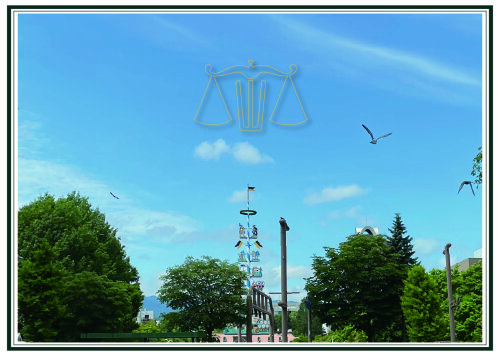Best Hiring & Firing Lawyers in Sapporo
Share your needs with us, get contacted by law firms.
Free. Takes 2 min.
List of the best lawyers in Sapporo, Japan
About Hiring & Firing Law in Sapporo, Japan
In Sapporo, as in the rest of Japan, the hiring and firing laws are primarily governed by national legislation, with specific local employment practices also playing a role. Notably, the Japanese Labor Standards Law is the overarching statute regulating employment conditions throughout the country, ensuring workers' rights are protected, and setting forth conditions under which employment relationships can be terminated. These laws are designed to promote fair hiring practices and protect against unwarranted dismissal, reflecting the Japanese cultural emphasis on employment stability and social harmony.
Why You May Need a Lawyer
Seeking legal advice in the field of hiring and firing may be necessary in various situations. If you are an employer, you may need assistance with drafting employment contracts, ensuring compliance with labor laws, or navigating the complexities of lawfully terminating an employee. As an employee, you might require legal help if you believe you have been wrongfully terminated or discriminated against during the hiring process. Understanding your rights and obligations under Japanese employment law can be challenging, and a lawyer can provide clarity and guide you through legal disputes or negotiations.
Local Laws Overview
While Japanese labor law applies nationally, certain local rules and practices may be relevant in Sapporo. Key aspects include:
- Contracts: Employment contracts must adhere to national standards and local practices, specifying terms and conditions of employment.
- Probationary Periods: These are permissible and can be used to assess suitability for permanent positions, although certain best practices are observed locally to ensure fairness.
- Dismissal: The law requires a justifiable reason for terminating an employee, which may relate to performance or behavior, and necessitates appropriate procedures.
- Notice Period and Severance: Employers must provide notice or pay severance in lieu of notice, the specifics of which are determined by national law and may be augmented by company policy.
- Dispute Resolution: Should a legal dispute arise regarding termination or hiring, local labor bureaus and courts may become involved, and specific local practices or precedents can influence outcomes.
Frequently Asked Questions
What constitutes wrongful termination in Japan?
Wrongful termination includes dismissals without justifiable reason, such as business downsizing without objective economic necessity or firing an employee without documented evidence of poor performance or misconduct.
Is employee consent required for termination?
In general, employee consent is not required for termination; however, the employer must establish a reasonable cause and follow appropriate procedures under the Labor Standards Law.
How long is the standard notice period for termination?
The Labor Standards Law stipulates a minimum notice period of 30 days, or payment in lieu of notice.
Can an employee challenge a termination?
Yes, employees can challenge a termination they believe to be unjustified, typically through labor tribunals or courts.
Are there specific rules for hiring foreign workers in Sapporo?
Foreign workers must have the appropriate visa to be legally employed, and employers must adhere to the same employment laws as for Japanese nationals.
What is the role of labor unions in hiring and firing in Japan?
Labor unions participate in collective bargaining, represent employee interests, and can play a role in resolving labor disputes including those related to termination or hiring practices.
Does an employer need to provide a reason for not hiring a candidate?
While not expressly required by law, transparency and non-discrimination are encouraged, and non-selection could be scrutinized if discrimination is suspected.
Are there protections against discrimination in hiring?
Japanese law prohibits discrimination in hiring based on race, creed, sex, social status, or family origin, as reflected in the Constitution and Labor Standards Law.
What documents should be reviewed before signing an employment contract?
Prior to signing, review the contract's terms, the company's work rules, and any relevant policies to understand obligations and rights fully.
Is it necessary to provide severance pay in Sapporo?
Severance pay is not mandated by Japanese law, but it may be provided based on the company's regulations or labor agreements.
Additional Resources
For those seeking more information or assistance regarding hiring and firing in Sapporo, the local labor bureau, Japan Legal Support Center, and labor unions can be valuable resources. The Ministry of Health, Labour and Welfare and the Japan External Trade Organization (JETRO) provide comprehensive guides on labor laws relevant to both employers and employees.
Next Steps
If you require legal assistance with hiring and firing in Sapporo, consider taking the following steps:
- Document all related communications and events thoroughly.
- Review your employment contract and company regulations carefully.
- Seek recommendations for experienced employment lawyers in Sapporo.
- Contact the local labor bureau for initial guidance or dispute resolution services.
- Consult with a lawyer for a professional assessment of your case and advice on legal proceedings.
Lawzana helps you find the best lawyers and law firms in Sapporo through a curated and pre-screened list of qualified legal professionals. Our platform offers rankings and detailed profiles of attorneys and law firms, allowing you to compare based on practice areas, including Hiring & Firing, experience, and client feedback.
Each profile includes a description of the firm's areas of practice, client reviews, team members and partners, year of establishment, spoken languages, office locations, contact information, social media presence, and any published articles or resources. Most firms on our platform speak English and are experienced in both local and international legal matters.
Get a quote from top-rated law firms in Sapporo, Japan — quickly, securely, and without unnecessary hassle.
Disclaimer:
The information provided on this page is for general informational purposes only and does not constitute legal advice. While we strive to ensure the accuracy and relevance of the content, legal information may change over time, and interpretations of the law can vary. You should always consult with a qualified legal professional for advice specific to your situation.
We disclaim all liability for actions taken or not taken based on the content of this page. If you believe any information is incorrect or outdated, please contact us, and we will review and update it where appropriate.












